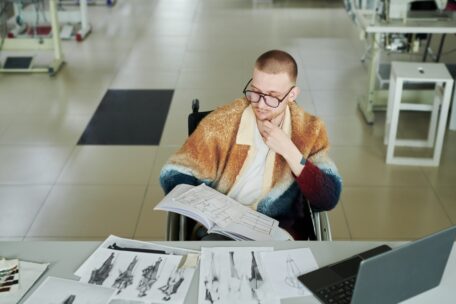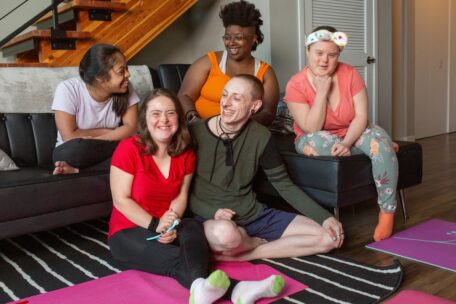The recent passing of the NDIS Amendment Bill has sparked significant concerns within the disability community, particularly due to the changes it introduces and the lack of involvement from people with lived experiences of disability during its formation.

Key Changes Introduced by the NDIS Amendment Bill
The NDIS Amendment Bill introduces several significant changes, including the introduction of Section 10. This section specifies what individuals can and cannot use their NDIS funding for, through specific lists. While this may appear to streamline the process, it poses limitations, particularly for those with multiple disabilities. The lists may not account for the complex needs that arise from having multiple conditions, creating barriers rather than support.
The bill also grants the NDIS CEO the authority to recover debts, which could place undue financial strain on individuals who may have made genuine mistakes in navigating the complex NDIS system.
Concerns Over Lack of Independent Review and Clarity
PWDA (People With Disabilities Australia) has expressed significant concerns regarding the lack of independent review mechanisms and the overall clarity of the bill. One of the major issues is that the bill’s reliance on specified lists could hinder the provision of “reasonable and necessary” support. This term, which currently allows flexibility in addressing individual needs, could become difficult to apply if a needed service or support does not appear on a predefined list, creating more red tape for people living with a disability in Australia.
Additionally, there is apprehension that people currently benefiting from the NDIS in specific, valid ways may lose access to essential support. Disability advocates have also pointed out the risks associated with the newfound powers granted to the NDIA CEO, which could lead to decisions that do not prioritise the needs and rights of people with disabilities.

The Problem with the Process: Lack of Co-Design
One of the most pressing issues with the NDIS Amendment Bill is the lack of co-design in its development. Disability advocates have emphasized that the disability community was not sufficiently involved in the process and did not co-develop or co-design the bill. This lack of involvement meant that the community saw the final bill and its lists at the same time as everyone else, with little opportunity to provide meaningful input.
Co-design is crucial because it ensures that those impacted by legislation have a say in shaping it. Co-design allows people with disabilities to share their insights on how decisions will impact them and offer alternative solutions that still meet the objectives of policymakers without causing harm to the community. It’s about being equitable partners in the process, ensuring that decisions are human-centered and disability-led.
The Importance of Diverse Voices
The diversity within the disability community means that one-size-fits-all solutions are rarely effective. Certain groups, such as those interacting with the criminal justice system, public guardian or those with complex or rare disabilities, are particularly vulnerable to falling through the gaps created by these changes. The over-criminalisation of people with disabilities, coupled with the standardization of support lists, means that many individuals may not receive the tailored support they need.

What Needs to Happen Next?
PWDA is calling for immediate actions to ensure that people with disabilities and their representatives have a meaningful role in any further changes to the NDIS. This includes safeguarding individuals from negative financial impacts, such as those that could arise from changes to costly Supported Independent Living (SIL) arrangements. There needs to be heightened importance of considering the long-term consequences of decisions and ensuring that the voices of people with disabilities are heard and respected at every stage of the process.
The NDIS Amendment Bill highlights the ongoing challenges in creating a truly inclusive system. By involving people with disabilities in the co-design of policies and ensuring that diverse needs are considered, we can work towards a more equitable and supportive community for all. After all, disability can affect anyone at any stage of life, making this an issue that ultimately impacts everyone.
